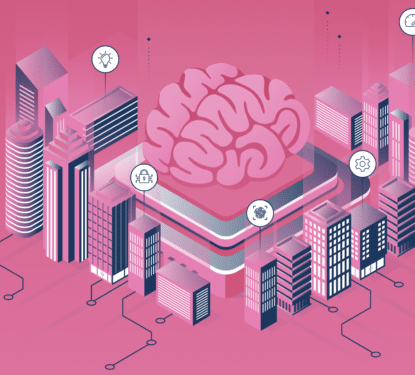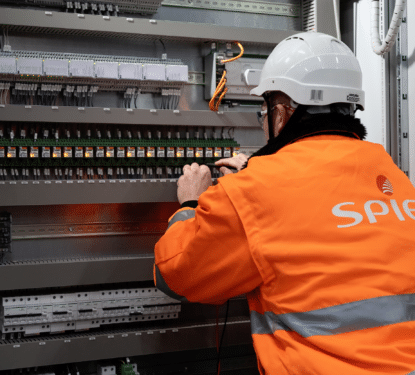If Swiss firm ABB, a leader in power and automation technology, and US computer giant IBM, a leader in artificial intelligence, had a power grid baby together – it could be really smart.
Last week, at Hannover Messe 2017, the two companies announced a strategic collaboration that brings together ABB’s digital offering, ABB Ability, with IBM Watson Internet of Things cognitive capabilities to unlock new value for customers in utilities, industry, transport and infrastructure using artificial intelligence.
“This important collaboration with ABB will take Watson even deeper into industrial applications — from manufacturing, to utilities, to transportation and more,” said Ginni Rometty, IBM Chairman, president and CEO.
“The data generated from industrial companies’ products, facilities and systems holds the promise of exponential advances in innovation, efficiency and safety. Only with Watson’s broad cognitive capabilities and our platform’s unique support for industries can this vast new resource be turned into value, with trust. We are eager to work in partnership with ABB on this new industrial era.”
Ulrich Spiesshofer, CEO of ABB, suggested that, “this powerful combination marks truly the next level of industrial technology, moving beyond current connected systems that simply gather data, to industrial operations and machines that use data to sense, analyze, optimize and take actions that drive greater uptime, speed and yield for industrial customers.”
The result of this collaboration promises to be the smartest grid on the block, and represents a step towards our energy ambitions. By adding greater intelligence to our transmission and distribution systems we can create reliable, cleaner and more efficient electricity provision. The smart grid promises to integrate renewable energy and energy storage in a dynamic system that can learn demand patterns in order to increase efficiency while prioritizing the greenest and cheapest forms of generation.
ABB and IBM will apply Watson’s capabilities to predict supply patterns in electricity generation and demand from historical and weather data, to help utilities optimize the operation and maintenance of today’s smart grids, which are facing the increased complexity created by the new balance of conventional as well as renewable power sources.
The collaboration will also accelerate the harmonization of smart grid with smart buildings.
The partnership brings new meaning to IBM’s 2015 acquisition of the Weather Company. “We see the next wave of improved forecasting coming from the intersection of atmospheric science, computer science and analytics,” said Weather Company CEO David Kenny two years ago. After the ABB agreement we should expect that the advanced forecasting of temperature, sunshine and wind speed will be used to predict consumption demand, which will help utilities determine optimal load management as well as real-time pricing.
The new suite of solutions developed by ABB and IBM will also help companies address some of their biggest industrial challenges, such as improving quality control, reducing downtime and increasing speed and yield of industrial processes. These solutions will move beyond current connected systems that simply gather data, to cognitive industrial machines that use data to understand, sense, reason and take actions supporting industrial workers to help eliminate inefficient processes and redundant tasks.

The corporate couple announced that they will leverage Watson’s advanced artificial intelligence to help find defects via real-time production images that are captured through an ABB system, and then analyzed using IBM Watson IoT for Manufacturing. The combination of Watson's real time cognitive insights with ABB’s industrial automation technology, should better equip companies to increase the volume flowing through their production lines while improving accuracy and consistency.
As parts flow through the manufacturing process, the solution will alert the manufacturer to critical faults - not visible to the human eye - in the quality of assembly. This enables fast intervention from quality control experts, easier identification of how defects impact all goods on the production line, and will help improve company competitiveness while avoiding costly recalls and reputational damage.
On paper the two firms look like a good match, not only to increase their respective market share and profitability but also to give birth to a new generation of intelligent systems and advance the smart grid industry and the industrial internet of things.
“With an installed base of 70 million connected devices, 70,000 digital control systems and 6,000 enterprise software solutions, ABB is trusted leader in the industrial space, and has a four decade long history of creating digital solutions for customers. IBM is a leader in artificial intelligence and cognitive computing,” says Spiesshofer. “Together, IBM and ABB will create powerful solutions for customers to benefit from the Fourth Industrial Revolution.”
[contact-form-7 id="3204" title="memoori-newsletter"]



